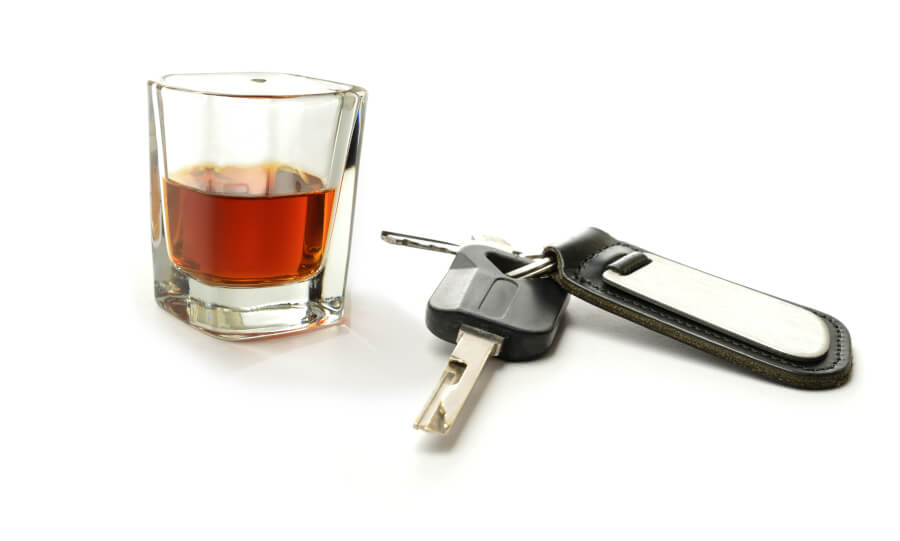To protect citizens from police misconduct, overarching reaches of power, and unjust policing, the U.S. Construction, federal laws, and North Carolina laws all provide a degree of protection. This is one of the bedrocks of our country, and so when you’re pulled over in North Carolina, it’s essential to remember your Constitutional Rights and know how they relate to your unique situation.
As one of the leading DWI and criminal defense attorneys in the Raleigh area, attorney Dewey Brinkley understands that violations of your Constitutional Rights can be used in court to get your charges dropped or your case dismissed. With attorney Brinkley at your side, you can expect vigorous and relentless protection of your rights as well as comprehensive litigation strategies to get you the outcome you want.
If you were arrested for DWI or another crime in the Raleigh and Wake County areas, call the Law Office of Dewey P. Brinkley today at (919) 832-0307.
Your Constitutional Rights in a Traffic Stop
The truth is, when you’re being pulled over and charged with a serious North Carolina law violation, you might be unaware of some of the Constitutional Rights that you have. At the same time, however, drivers in North Carolina should be diligent and take careful consideration regarding why they’re being pulled over and whether there are any illegal or incriminating objects on their person or in their vehicle.
One of the most common DWI defense strategies that you and your attorney may pursue can include challenging the legality of the traffic stop and the legality of the police proceedings before, during, and after the arrest. During the arrest, however, there are some rights that you should know (and know how to use), including:
Unreasonable Search and Seizure (the Plain View Doctrine)
It’s essential to remember that North Carolina law enforcement is limited in their ability to search private vehicles. In short, the Fourth Amendment of the Constitution states that “[t]he right of the people to be secure in their persons, houses, papers, and effects, against unreasonable searches and seizures, shall not be violated, and no Warrants shall issue, but upon probable cause, supported by Oath or affirmation, and particularly describing the place to be searched, and the persons or things to be seized.”
In simple terms, this means that the police cannot search you or your property without a warrant. However, this is not all-inclusive, as the Plain View Doctrine also states that criminal conduct that a police officer observes in plain view is subject to search and seizure without a warrant or probable cause. As such, if you are swerving and, after the police officer pulls you over, observes your bloodshot eyes and smells alcohol, the police officer has probable cause that you may be intoxicated.
If the officer cannot explain his/her probable cause for stopping your vehicle, then the evidence obtained during the stop, such as your BAC level, may be ruled inadmissible in North Carolina courts.
Right to Remain Silent
One of the second most important Constitutional Rights is your right to remain silent. This is covered by the Fifth Amendment. In other words, you retain the right to refuse to answer certain questions, such as “Have you been drinking tonight?” “Where are you going?” “Where are you coming from?” etc.
Keep in mind that no criminal action may be taken against a driver refusing to offer potentially incriminating information; however, there may be administrative penalties for refusing to cooperate, such as an automatic license suspension for drivers who refuse to take a field sobriety test, a breathlyzer, or a chemical test.
If you want to use your Right to Remain Silent, make sure that you say so out loud.
Availability of a Public Defender (Right to Counsel)
Lastly, in the United States, the Sixth Amendment states that you have the right to an attorney, and if you cannot afford one, an attorney will be provided by the state, free of charge.
The Do’s and Don’ts of a Traffic Stop in North Carolina
When being pulled over for a DWI or another alleged criminal charge, it’s crucial to listen to the police officer, respectfully assert your rights, and, if the police officer is violating your rights, let the courts and your defense attorney fight for those rights. Some Do’s in a traffic stop should include:
- DO show your license, insurance, and registration materials when asked.
- DO keep your hands on the wheel and notify the officer when you are reaching for anything.
- DO say, “I do not consent to a search.”
- DO sign a ticket if you are given one; refusing to sign the ticket could result in further charges.
- DO take the DWI test, unless you’re willing to lose your license for a year.
Some Don’ts in a DWI stop include:
- DON’T physically resist a search. Calmly state, “I do not consent to a search.”
- DON’T search for your license or registration until asked.
- DON’T disrespect the officer, even if that officer is violating your Constitutional Rights.
Call Your Raleigh NC DWI Attorney For a Free Consultation
Being arrested for a DWI is never a pleasant situation, and you can make the matters worse by aggressively asserting your Constitutional Rights. In any case, always remember that you have the right to be free from unreasonable searches, you have the right to remain silent, and you have the right to an attorney.
Therefore, if you’re being arrested for a DWI in Raleigh or Wake County, make sure to call the leading Raleigh DWI attorney Dewey Brinkley. For a free consultation with our law firm, call us today at (919) 832-0307.



